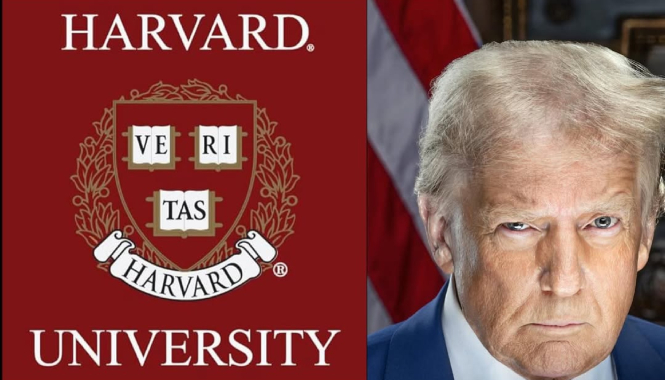Harvard University has filed a sweeping 51-page federal lawsuit against the Trump administration, accusing it of unlawfully freezing $2 billion in research funding in retaliation for the university’s alleged failure to crack down on antisemitism.
The lawsuit, filed in U.S. District Court, claims the government is abusing its authority to force ideological compliance from one of the nation’s leading academic institutions.
Last week, Harvard rejected sweeping demands from the Trump administration that threatened to withhold more than $9 billion in research funding. Harvard President Alan Garber, M.D., Ph.D., issued a strongly worded statement asserting that the university “will not surrender its independence or relinquish its constitutional rights,” denouncing the administration’s attempt to impose political control over academic affairs.
Here are seven key allegations raised in the lawsuit:
1. First Amendment Violation Through Viewpoint Discrimination
Harvard argues the administration’s actions constitute unconstitutional viewpoint discrimination, alleging that the government is leveraging federal funding to coerce the university into adopting political stances—particularly around antisemitism, faculty oversight, and campus speech.
2. Improper Interference in Academic Governance
The suit challenges a set of unprecedented federal demands, including requiring the university to audit professors for plagiarism, report misconduct by international students, and appoint an external official to monitor “viewpoint diversity.” Harvard claims these intrusions threaten core academic freedoms.
3. Retaliation for Refusing Federal Demands
Harvard alleges that the $2 billion research freeze was imposed in direct retaliation for the university’s refusal to comply with politically motivated mandates. The university called the demands “improper and unprecedented,” arguing that they have no basis in existing law or regulation.
4. No Nexus Between Accusations and Punitive Action
While the administration claims the freeze is a response to antisemitism, Harvard asserts that none of the halted projects are connected to that issue. Affected studies include medical research into ALS, radiation poisoning, and tuberculosis, suggesting a broader agenda unrelated to campus bias.
5. Use of Antisemitism Allegations as a Political Weapon
University President Alan Garber condemned the government’s rationale as a pretext for political interference, stating that the administration is weaponizing antisemitism to punish ideological opponents and reengineer university governance.
6. Potential Chilling Effect on Higher Education Nationwide
Legal scholars warn that if the administration’s actions go unchecked, they could set a dangerous precedent for federal interference across the higher education landscape. Several universities—including Columbia, Princeton, and Cornell—have also been threatened with similar consequences.
7. Urgent Need for Judicial Relief
Citing irreparable harm to ongoing research, Harvard is seeking an expedited ruling to lift the funding freeze. Faculty warn that delays could cripple scientific advancements and damage long-term international research partnerships.
What’s Next?
This lawsuit may become a defining legal battle over academic freedom, constitutional limits on federal oversight, and the politicization of public funding. As Harvard takes its fight to the courts, the broader academic world is watching closely—aware that the outcome could reshape the future of higher education governance in the United States.

